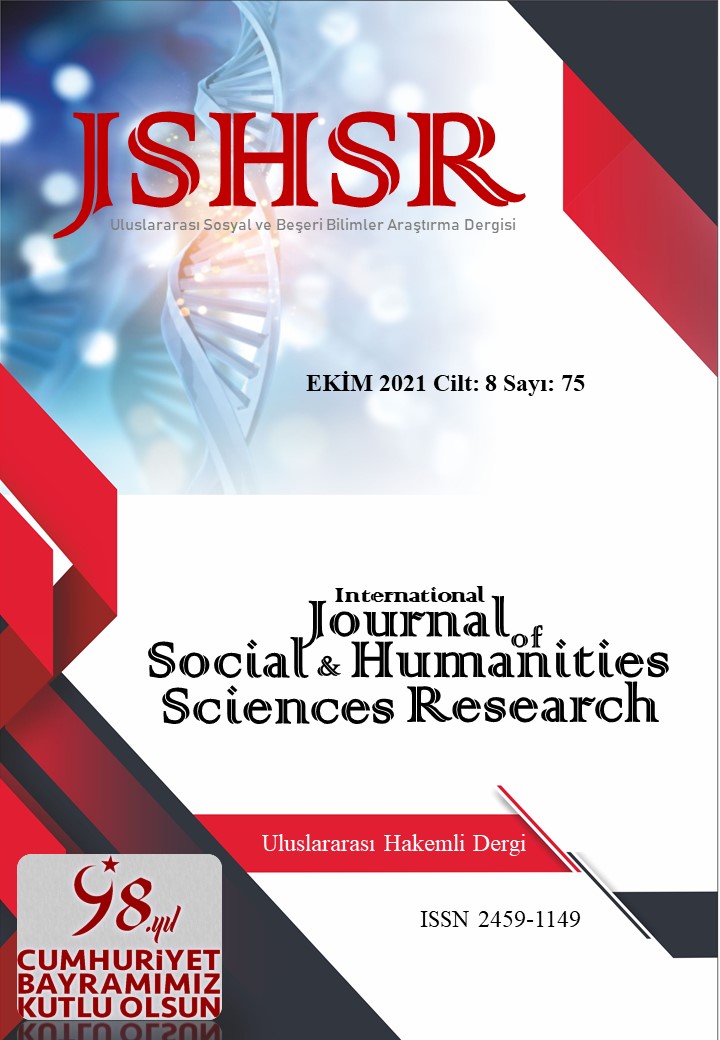THE EFFECT OF SELF ASSESSMENT ON THE EFL STUDENTS’ SELF EFFICACY CONCERNING SPEAKING SKILLS
DOI:
https://doi.org/10.26450/jshsr.2473Anahtar Kelimeler:
EFL, Self Assessment, Self Efficacy, Speaking SkillsÖzet
Evaluation of students' self-efficacy towards learning and speaking English is an important issue in education. Different methods are used to evaluate this level of competence. In this context, “self-assessment” is one of the effective methods applied to evaluate the speaking skills of EFL students.
This study will be aimed to examine the self-assessment method of EFL students' self-efficacy towards speaking skills. For this purpose, prominent factors will be evaluated by examining the relevant studies in the literature. Also, according to the individual characteristics of EFL students, will be tried to determine the relationship between the self-assessment of speaking skills and self-efficacy.
The study will not be carried out using experimental or quasi-experimental methods on any study group but will be conducted using descriptive research techniques. Therefore, the descriptive research technique, one of the qualitative research methods, was used in the study.
It is believed that there is a strong relationship between the students' effective evaluation of speech self-efficacy and evaluation of their deficiencies in this direction and their development of these abilities. To motivate students to learn English, it is very important to help them and determine their shortcomings.
In line with the findings of the study, it is evaluated that the self-efficacy of EFL students will be evaluated on their own and that it will shed light on them and this aspect of the study is considered to be important in terms of contributing to the literature.
İndir
Yayınlanmış
Nasıl Atıf Yapılır
Sayı
Bölüm
Lisans
Telif Hakkı (c) 2021 INTERNATIONAL JOURNAL OF SOCIAL HUMANITIES SCIENCES RESEARCH

Bu çalışma Creative Commons Attribution 4.0 International License ile lisanslanmıştır.


